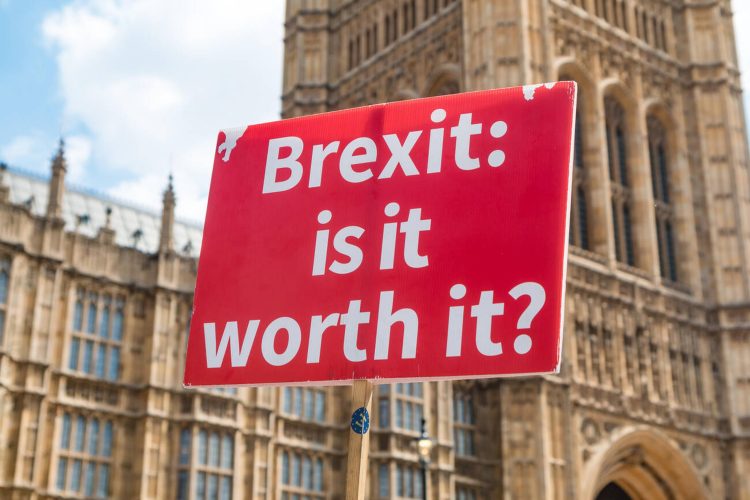Voters’ opinion on Brexit shows that the British people are not in support of Brexit. They know Brexit as a big failure that failed to deliver on its promises. In 2016, voters opted to leave the European Union in a close-call referendum, with 51.9% voting to leave and 48.1% to remain. Nine years after the Brexit vote, the British public is showing signs of regret.
Asked whether Brexit has been more of a failure than a success, 61% said it had been more of a failure. Brexit failed to fulfil its promises, leading to widespread dissatisfaction. The unfavourable effects of Brexit on the economy, migration, and defence of the UK are significant. The promises about a better economy and controlled immigration were reversed in the UK.
Voters’ Opinion on Brexit: A Terrible Damage
Poll after poll includes the one unveiled this weekend by More In Common for the Sunday Times. The British people believe. People are feeling the terrible damage due to the deal forced by Boris Johnson and the Conservative Party. People want something different. Currently, 57% of Britons say that the country was wrong to vote for Brexit in 2016. It is the highest figure YouGov has recorded to date.
On the other hand, one in three (32%) think it was the right call. One in five Leave voters (19%) now say it was the wrong decision.
Public opinion is turning against Brexit. Most Britons would now vote to rejoin the EU if such a vote were being called because people are, understandably, tired. After so many failures of Conservative and Labour governments, people’s faith in politics is at an all-time low. Many people don’t believe that any government, regardless of party, can improve their lives.
Voters’ Opinion on Brexit: Most People Want the EU
Fewer than a third of voters would back leaving the European Union if the Government holds a Brexit referendum again. Just 29 per cent of people would vote to withdraw from the EU if there was a chance of voting again. It is in comparison with 52 per cent in June 2016, according to a survey for The Sunday Times.
The More in Common research shows that half of the respondents believe there should be another referendum on whether to re-join the bloc. The results show a shift in attitudes towards being part of the EU. It is less than ten years after the historic result in 2016.
YouGov Poll: Brexit A Big Failure
Additionally, more than half of the participants would like to vote in a new referendum within the next 25 years. The latest YouGov poll showed it. Nine years after the Brexit vote, the British public is showing signs of regret. In 2016, voters opted to leave the European Union in a close-call referendum, with 51.9% voting to leave and 48.1% to remain. Currently, 72% of Britons say that the Government is handling Brexit poorly, including 63% of Leave voters.
But nine years on, 56% of Brits say they believe the decision to leave the bloc was wrong. Only around 31% of the public maintain it was the right decision, according to a new survey by YouGov. Asked whether Brexit has been more of a failure than a success, 61% said it had been more of a failure. Moreover, 20% stated it was neither, while 13% argued it has been a success. Of those who see Brexit as a disappointment, 88% placed the blame on the UK’s Conservative Party. While 84% said former Prime Minister Boris Johnson was to blame.
Negative Impact of Brexit on the Economy: Unfulfilled Promises
Economists and analysts generally assess the impact of leaving the EU on the UK’s goods trade as negative. This is even though the UK negotiated a free trade deal with the EU and avoided tariffs or taxes. Some recent studies suggest that UK goods exports are 30% lower than they were before leaving the single market and customs union. Economic consequences highlighted include a projected 15 per cent reduction in UK trade and an estimated annual cost of £37 billion to UK businesses.
Voters’ Opinion on Brexit is also affected by the unsuitable economic situation. Despite Britain’s ferociously pro-Brexit media, few voters can avoid hearing at least some of the actual effects of Brexit. £27bn has been lost in EU trade in the first two years. British goods exports have lost 6.4% a year, and 40,000 finance jobs have departed for the EU from the City. The Centre for Inclusive Trade Policy announced that British food exports to the EU have fallen by £3bn a year. Brexit costs the UK £1m an hour, says the Office for National Statistics.
Voters’ Opinion on Brexit: Migration a Concerning Problem
Another factor affecting the Voters’ Opinion on Brexit and their desire to re-join the EU is immigration. Immigration was a key theme in the 2016 referendum campaign. The focus was on freedom of movement within the EU. Therefore, UK and EU citizens could freely move to visit, study, work, and live. Since the referendum, a significant fall in EU immigration and EU net migration has been recorded. Freedom of movement ended, and the fall also accelerated after 2020. Employers have struggled with staff shortages amid the loss of previously readily available EU workers, particularly in construction, hospitality, and manufacturing.
Some factors have made immigration in the UK a concern. It includes increased non-EU migration, strains on public services, and shifts in the labour market. Currently, two types of immigration into the UK are concerning. One type is uncontrolled immigration from the EU. The other one is controlled immigration from outside the EU. There is an argument that controlling EU immigration after Brexit is complicated, because the Government cannot control immigration from outside the EU. Additionally, the two types of immigration are different. Immigration from the EU is mainly economic, based on job-seeking, something which is much less accurate than immigration from outside the EU.





























